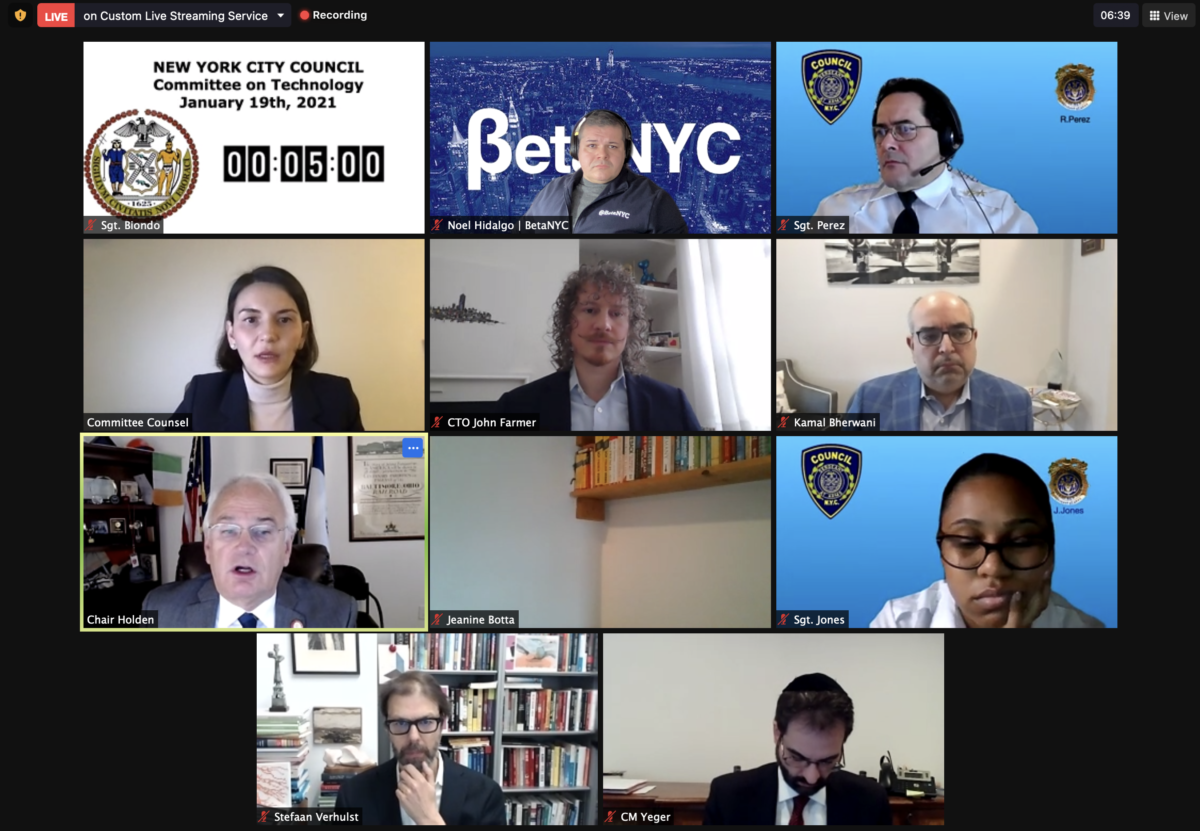To: NYC Council – Committee on Technology, Chair Holden
From: Noel Hidalgo, Executive Director
Re: Oversight – Smart City
Tuesday, 19 January 2021
On behalf of the BetaNYC community, we would like to say thank you for hosting this open conversation.
First, BetaNYC would like to acknowledge this Administration’s involvement in the Cities for Digital Rights coalition. As a founding member, New York City has made the global commitment to promoting and defending digital rights.
To ensure we retain our rights into the 21st century, we need consistent technology leadership in the Mayor’s Office, across agencies, and in Council. With the ebb and flow of inconsistent leadership in this Mayor’s Office, we ask that Council and the Public Advocate, via the Chair of Commission on Public Information and Communication (COPIC), convene a study group and identify concrete strategies to ensure New York City government has consistent technology leadership through the next administration and beyond.
This will include auditing and inventorying existing technology, reforming Mayoral Offices and agencies, improving procurement policies and civil servant hiring practices. Where needed, new legislation will need to be introduced.
The pandemic has made the digital divide wider than ever. To bridge this, we need consistent, well informed, and properly resourced leadership. We need to openly investigate the harms that technology can cause, ensure community input is integrated into these services, our privacy is protected, and that the government can hold these systems accountable. A truly smart city can balance these things.
For the last decade or so, we’ve been told that the smart city is around the corner. We’ve been told that smart trash cans will minimize overflowing trash cans, smart traffic lights will eliminate congestion, cameras will keep our kids safe, microphones will tell us where guns are being fired, and artificial intelligence will tell us what problem to solve next.
Let it be clear, these are marketing campaigns that digitally wash over the complexities of government, logistics, and infrastructure. None of these smart city tools address the root issue of service delivery, infrastructure investment, and interagency coordination.
Rebecca Williams, an old friend and Technology Public Purpose Fellow at Harvard School Belfer Center for Science and International Affairs has submitted written testimony.
For the record, I’d like to echo several of her well researched points.
- Every new piece of “smart city” technology increases potential harms.
- Many times, these tools are deployed without community input.
- Many tools are sophisticated surveillance devices that erode privacy and 4th Amendment protections.
- They can have a chilling effect on 1st Amendments rights.
- Tools have led to “digital redlining” and further causing discrimination and oppression in communities of color.
- Lastly, they can lead to the loss of an accountable government; as we have seen with the conversation around tools for law enforcement and predictive analytics.
A truly smart city can ensure our legal rights are protected, money is not wasted, and our civil servants work smarter, not harder.
Thank you for this opportunity to provide insight on how we view the future.
Noel Hidalgo,
Executive Director of BetaNYC
noel@beta.nyc
